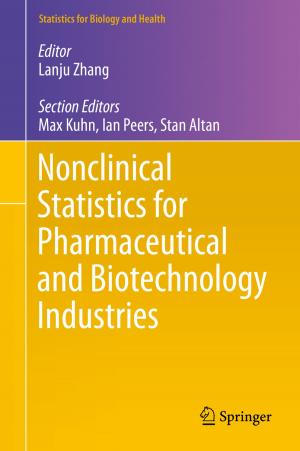Parasitic Protozoa of Farm Animals and Pets
Nonfiction, Health & Well Being, Medical, Ailments & Diseases, Infectious Diseases, Parasitology, Veterinary Medicine| Author: | ISBN: | 9783319701325 | |
| Publisher: | Springer International Publishing | Publication: | April 17, 2018 |
| Imprint: | Springer | Language: | English |
| Author: | |
| ISBN: | 9783319701325 |
| Publisher: | Springer International Publishing |
| Publication: | April 17, 2018 |
| Imprint: | Springer |
| Language: | English |
This book provides an in-depth yet concise overview of the most common and emerging protozoa that cause diseases in both farm animals and companion animals. As outlined in the concise introduction, pathogenic protozoans represent an evolutionary highly diverse and little understood group of disease-causing microorganisms. For each of the featured parasitic unicellular eukaryotes, it discusses the morphology, lifecycle, epidemiology and host-pathogen interactions. In addition, the book highlights the latest developments in diagnostic methods, as well as prevention and treatment strategies. Thorough information on genomes and genetic manipulation strategies for some of the protozoa covered in this book is also included. Infections involving parasitic protozoa can cause productivity losses and/or reduce the quality of life of infected animals. Some infections are zoonotic, posing an on-going public health threat. In most cases, prevention and treatment are either non-existent or need considerable improvement. On the other hand, a great deal of research has recently been conducted on these organisms, yielding valuable new information on their global distribution and revealing the mechanisms of host-pathogen interactions at the molecular level – and essential insights that can be used for the development of new control tools. This book includes extensive information on both basic aspects and recent scientific discoveries on these protozoa and thus constitutes a unique resource for students, veterinarians, and researchers alike.
This book provides an in-depth yet concise overview of the most common and emerging protozoa that cause diseases in both farm animals and companion animals. As outlined in the concise introduction, pathogenic protozoans represent an evolutionary highly diverse and little understood group of disease-causing microorganisms. For each of the featured parasitic unicellular eukaryotes, it discusses the morphology, lifecycle, epidemiology and host-pathogen interactions. In addition, the book highlights the latest developments in diagnostic methods, as well as prevention and treatment strategies. Thorough information on genomes and genetic manipulation strategies for some of the protozoa covered in this book is also included. Infections involving parasitic protozoa can cause productivity losses and/or reduce the quality of life of infected animals. Some infections are zoonotic, posing an on-going public health threat. In most cases, prevention and treatment are either non-existent or need considerable improvement. On the other hand, a great deal of research has recently been conducted on these organisms, yielding valuable new information on their global distribution and revealing the mechanisms of host-pathogen interactions at the molecular level – and essential insights that can be used for the development of new control tools. This book includes extensive information on both basic aspects and recent scientific discoveries on these protozoa and thus constitutes a unique resource for students, veterinarians, and researchers alike.















